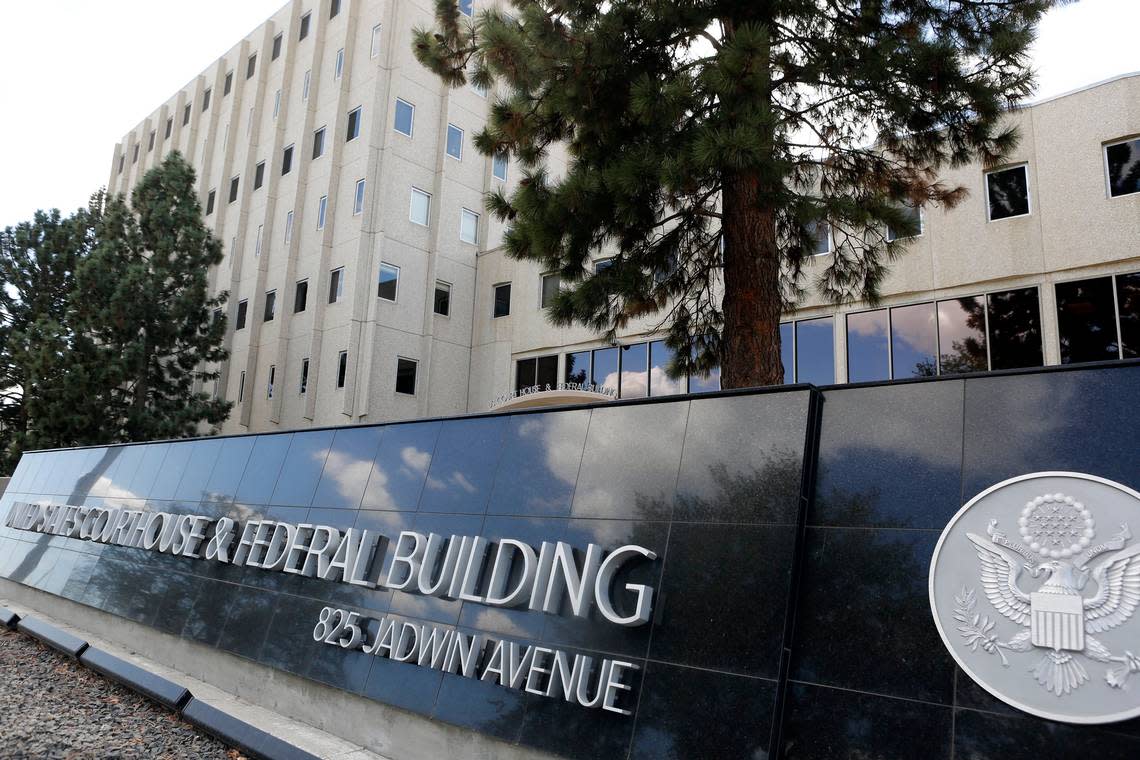2 Tri-Citians accused of +$800,000 in COVID loan fraud. Feds say one bought a house with it
Two West Richland residents have pleaded innocent in separate federal court cases accusing them of fraudulently obtaining more than $800,000 in COVID-19 relief funding.
Andrei Stephanovich Borgheriu, 45, received about $500,000 for his trucking company, Artway Transport. But a grand jury indictment alleges he used most of the money not for his business but to pay cash for a house in West Richland.
The federal government is seeking forfeiture of the house.
Jimia Rae Cain, 52, also known as Jimia Rae Halbrook, received money for Americore Construction Inc. She said her purported business started as early as 2017, but was not engaged in any business as of January 2020 and had no employees, according to an indictment.
She received about $330,000 in COVID relief funding, but was turned down when she requested an additional $280,000.
The Coronavirus Aid, Relief and Economic Security Act, or CARES Act, provided small businesses with money to help with the economic impacts of the pandemic.
COVID loan strike force
In one program, the Paycheck Protection Program, small businesses were given loans for payroll and other expenses, which could be forgiven if used for appropriate purposes.
In another program, the Economic Injury Disaster Loan Program, low interest loans were provided to small businesses. The payback could be deferred until after the pandemic.
Hundreds of millions of dollars have been loaned to Eastern Washington businesses through the programs, most of which has not been paid back, according to the U.S. Attorney’s Office of the Eastern District of Washington.

“COVID-19 relief programs were designed to lift up our community during crisis, and due to the number of people and businesses that requested funding, some deserving small businesses were not able to obtain funding to keep their businesses in operation,” said U.S. Attorney Vanessa Waldref.
The U.S. Attorney’s Office formed a COVID-19 Strike Force, working with law enforcement, to root out and prosecute fraudulently obtained loans under the CARES Act and “make sure that those who misused COVID-19 relief funding are held accountable,” Waldref said.
Trucking company loan
Borgheriu applied for an Economic Injury Disaster Loan in summer 2021, agreeing that the money would be used as working capital for Artway Transport.
Working capital includes payroll, sick leave, production costs, debts, rents and mortgage payment.
In August of that year $500,000, minus a $100 handling charge, was deposited in his Artway Transport bank account, which then had $3,100, according to court documents.
A day later, a title company opened an order for Borgheriu to buy property at 1710 Sunshine Ave. in West Richland.
On Sept. 1, 2021, a wire transfer for $450,283 was sent from the Artway Transport bank account to the title company.
Borgheriu was indicted by a grand jury on two counts of wire fraud and making a fraudulent claim, plus forfeiture allegations.
Questions on construction company
Cain was indicted by the grand jury on four counts of wire fraud, two counts of fraudulent claims, one count of bank fraud and forfeiture allegations.
She applied for a $265,267 Paycheck Protection Program loan and a $71,900 Economic Injury Disaster Loan in the summer of 2020 for the company Americore Construction. Both loans were granted.
She said in one of the loan applications that her business was started in 2017, had three employees in January 2020 and that it had gross revenues for the a year prior of $450,000, according to court documents.

In another application she said that her business was established in 2019 and had seven employees and an average monthly payroll of about $106,000.
But there were not tax and other records to back up her claims, according to court documents.
She did not apply for an employer identification number from the Internal Revenue Service until February 2020 and did not receive a state business license until March 2020, according to court documents.
Americore had no employees, expenses or receipts in the prior 12 months, according to the indictment.
In April 2020, Cain opened a business checking account in the name of Americore with a $25 deposit, according to court documents.
Cain also did not file any federal tax returns or employer tax returns from 2018 to 2020, nor did the state have any payroll records for those years, according to court documents.
Cain also falsely claimed in applications to have no prior convictions other than minor vehicle violations, according to court documents.
But the indictment says she had two prior convictions for fraud and four gross misdemeanor convictions, making her ineligible for an Economic Injury Disaster Loan.
Loan forgiveness denied
Cain applied for for a second Economic Injury Disaster Loan, this one for $280,200, in May 2021, but was turned down by the Small Business Administration.
In October 2021, she requested loan forgiveness for the Paycheck Protection Program loan, but the Small Business Administration turned her down because she refused to provide requested tax documents, including Americore’s 2019 tax returns, according to the indictment.
The fraud charges against Cain carry a maximum sentence of up to 30 years in federal prison. Charges against Brogheriu carry a maximum sentence of up to 20 years.
